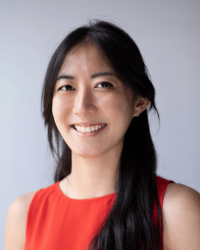Dr Keri Wong, from IOE, UCL’s Faculty of Education and Society, shares her experience of co-creating mental health workshops with young people and partners in London.
First experience of knowledge exchange
This was my first application for knowledge exchange funding from UCL Innovation & Enterprise, and it allowed us to do some really interesting work with a west London charity called Jamal Edwards Delve.
The charity was set up by the late Jamal Edwards, who founded the SB.TV YouTube hiphop channel. Jamal grew up in Acton, and was passionate about supporting young people in his neighbourhood. His charity helped to reopen two community centres, where young people aged 12 to 17 years can develop their interests, skills and career paths.
After responding to a request for speakers from the charity, I went in to give a talk to the young people there about mental health, and it was one of the most life-changing talks I’ve ever done.
Being new to London, having recently arrived from Cambridge and before that Philadelphia and Hong Kong, I wanted to learn more about the city and community, and I met these young people who were very curious, and smart and bright. But at the same time, they were experiencing all kinds of social inequalities and pressures, that were out of their control and part of the social fabric that they lived in. So when COVID-19 hit a year later, I felt very strongly I wanted to do something to help.
Working together we can do more
In collaboration with the charity, we applied for Higher Education Innovation Funding (HEIF), managed by UCL Innovation & Enterprise, to co-design a series of mental health and life skills workshops with the young people.
We hired student researchers from the IOE to carry out interviews with the young participants, to discover how the pandemic had affected their mental health, and what they needed to cope better. Many of these young people don't feel heard. They get pushback all the time in school and sometimes in the home. So through the co-production process, it was vital to us that they felt validated, listened to, and trusted us to get involved.
The five workshops we co-produced are all grounded in what the young people told us they wanted help with the most. My contacts from the BBC visited the community centre to talk about storytelling and how their stories matter. We did a workshop on body image, with a colleague who is a clinical psychologist, to discuss body confidence. We brought young people for a tour of UCL campus to learn about STEM and social science subjects and what university life is like.
For another workshop we returned to campus to talk about social identity, young people’s lived experiences and coping strategies to deal with different biases. We also did a workshop on the creative arts, and the young people created a small canvas on what they’d learnt, which when put together created a larger piece of artwork made up of everyone’s canvases. The final artwork is hung up in the community centre today as a reminder of the project.
All workshops involved guest speakers and students who shared their own career journeys to inspire the young people to think about their own.
Our partnership with the charity was vital in the success of the project, as they already had good relationships with the young people we worked with. It would have taken a lot longer for us to build the same level of trust without the connection they already had.
From the charity’s perspective, working with UCL has allowed them to measure the sustained impact of the work they’re doing, and to go even further to support these young people.
And for me as a researcher, being in the community and leading a project like this has helped me put my research into practice. Historically, a lot of what we do is theory driven. We explore the concepts but don’t often see them executed. So to work with partners on the ground, as we’ve done here, is super helpful in figuring out what’s actually feasible.
Meanwhile, giving our students this hands-on experience of research, through the conversations they’ve had with young people, has also added a rich extra layer to their learning and informed their own career paths.
Support from UCL Innovation & Enterprise
If you’re considering applying for this kind of project, I’d strongly encourage you to go ahead.
We had a lot of fantastic support from the Business and Innovation Partnerships and Knowledge Exchange Funding teams in UCL Innovation & Enterprise. They helped us with the application for this first project (which has now led to the second ‘Empower Islington’ project with Islington Council) and were instrumental in connecting us with the right contacts.
With a project like this, it’s difficult to know where you might end up until you’ve spoken to the partners and participants, and really understood the issues and needs. I’m extremely proud of what we’ve created together. So much so that we’ve taken the concept forward with Islington Council to co-create mental health and life-skills workshops with even more young people in the borough. I’m excited to see where future collaborations could lead.
Links
Find out more about:
 Close
Close


